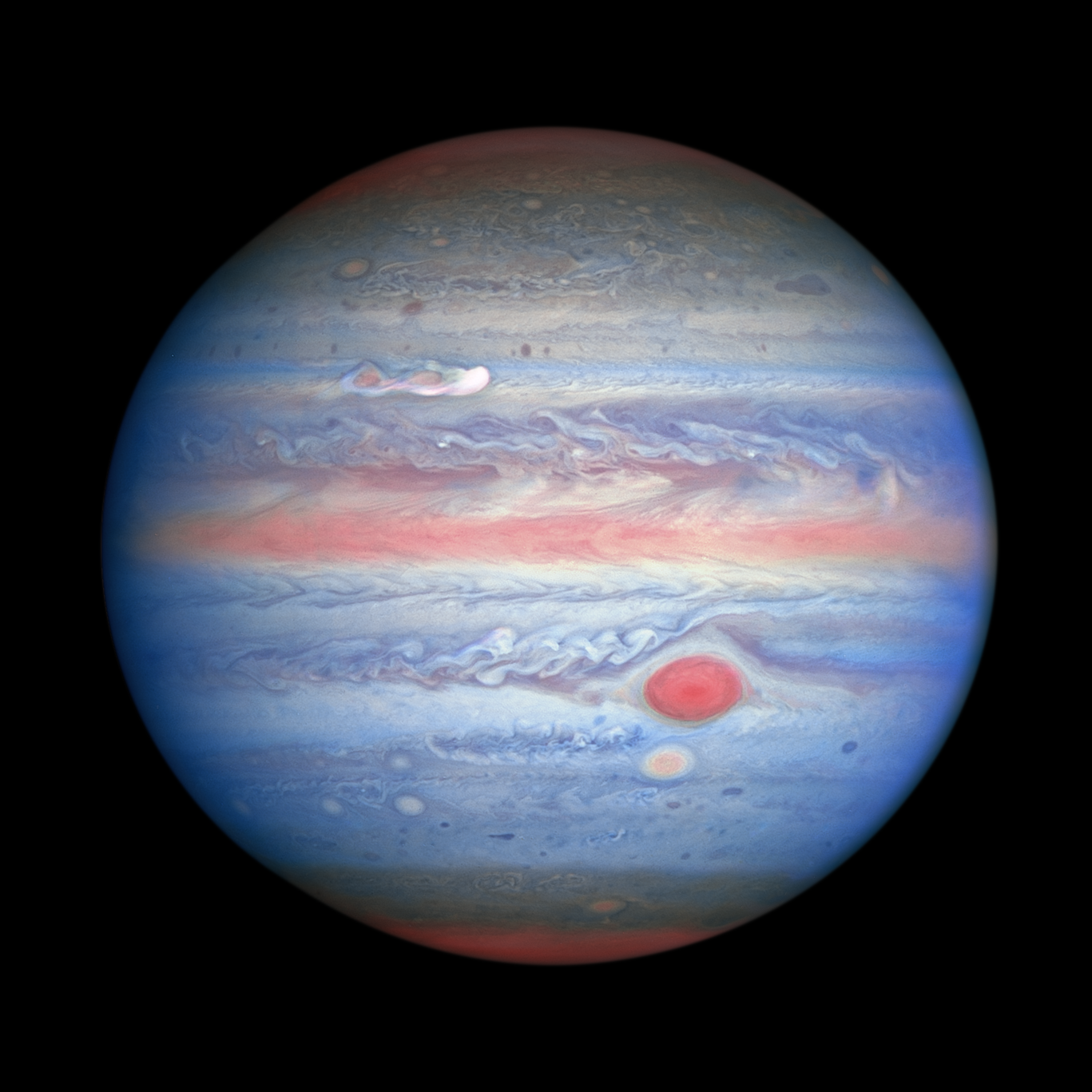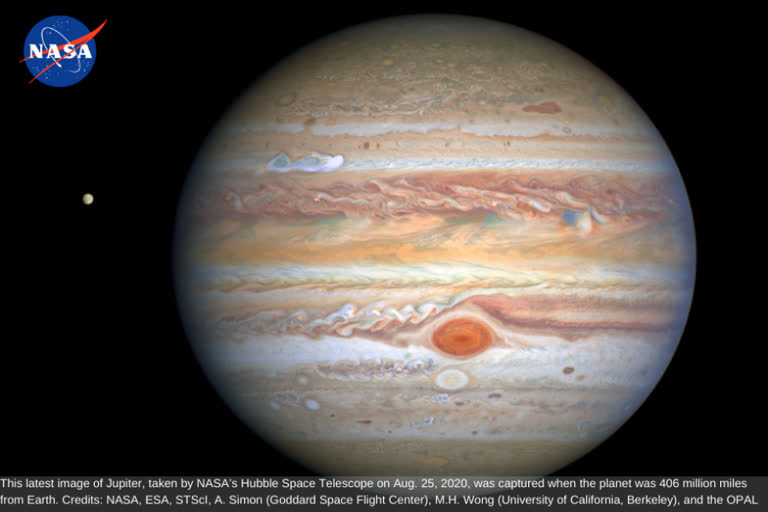Washington, D.C.: NASA Hubble Space Telescope on August 25 has captured the latest image of Jupiter when it was just 406 million miles away from Earth. The researchers found a remarkable new storm brewing and a cousin of the famous Great Red Spot region gearing up to change color again.
The snapshot appears at mid-northern latitudes as a bright, white, stretched-out storm traveling around the planet at 560 kilometers per hour. This single plume erupted on August 18, and ground-based observers have discovered two more that appeared later at the same latitude.
Hubble Space Telescope shows that the Great Red Spot, rolling counterclockwise in the planet’s southern hemisphere, is plowing into the clouds ahead of it, forming a cascade of white and beige ribbons.

The Great Red Spot is currently an exceptionally rich in red color, with its core and outermost band appearing deeper red.
Further, the researchers said “the Great Red Spot now measures about 9,800 miles across, big enough to swallow Earth. The super-storm is still shrinking as noted in telescopic observations dating back to 1930, but the reason for its dwindling size is a complete mystery.”
The Oval BA, nicknamed by astronomers as Red Spot Jr., which appears just below the Great Red Spot in the latest image has been fading in color to its original shade of white after appearing red in 2006.
However, now the core of this storm appears to be darkening slightly. This could hint that Red Spot Jr. is on its way to turning to color more similar to its cousin once again. Hubble image shows that Jupiter is clearing out its higher altitude white clouds, especially along the planet’s equator, where orangish hydrocarbon smog wraps around it.
This Hubble image is part of yearly maps of the entire planet taken as part of the Outer Planets Atmospheres Legacy program (OPAL). The program provides annual Hubble global views of the outer planets to look for changes in their storms, winds, and clouds.
Also Read: Features and Specifications of Huawei MatePad Pro 5G. Rethink Creativity
(ETV Bharat)



